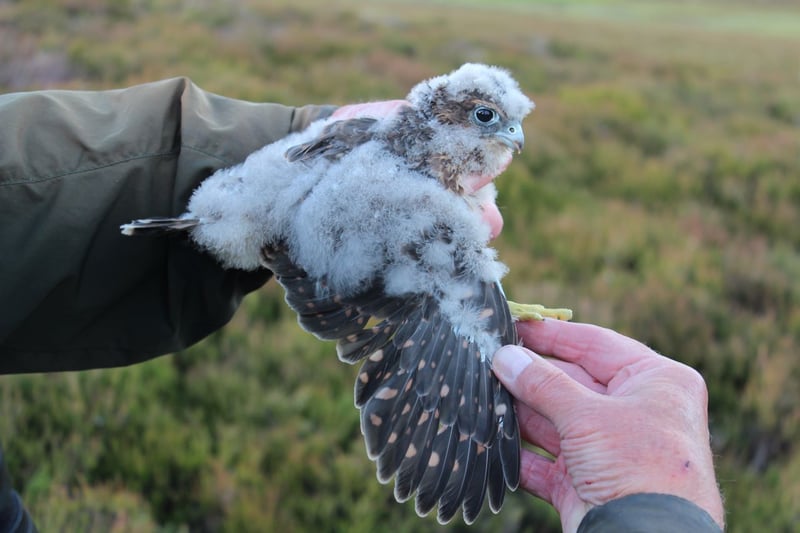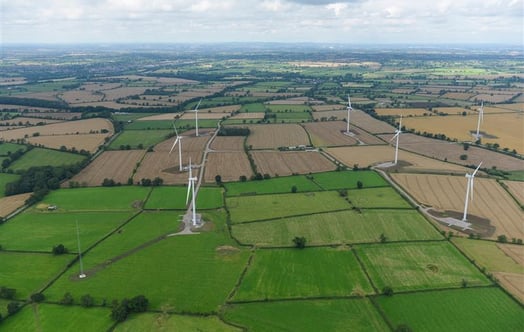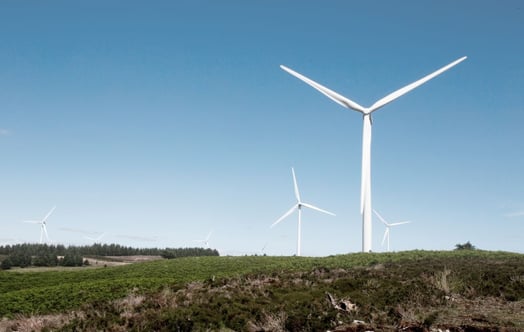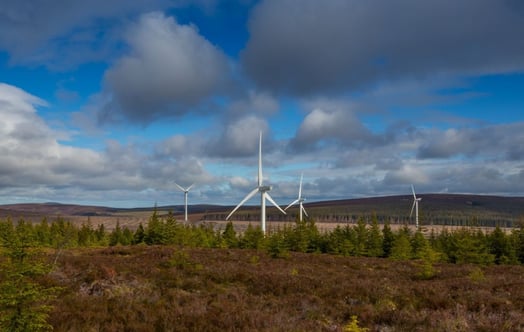Britain’s smallest bird of prey continues to thrive at Ray Wind Farm
- Ray Wind Farm near Kirkwhelpington has been generating electricity since 2017
- 23 Merlin chicks have fledged at Ray Wind Farm since 2017
- Merlin are Britain’s smallest bird of prey with an estimated population of around 1,000 pairs in the UK
Twenty-three Merlin chicks from nests around the turbines at Ray Wind Farm, near Kirkwhelpington in Northumberland have fledged since the wind farm started generating electricity in 2017.
Merlin (Falco columbarius), which are Britain’s smallest bird of prey have suffered a decline in the past, with an estimated population of around 1,000 pairs in the UK.

Vattenfall, owner and operator of Ray Wind Farm, were aware that Merlin were present at the site through development and were very careful to ensure that the birds were not disturbed during the construction and operation of the wind farm, working closely with key bodies.
As part of the Habitat Management Plan at the wind farm, improvement works were undertaken to restore sensitive habitats including blanket bog by re-wetting the surrounding area. Works are also being undertaken to encourage the regrowth of heather, improving biodiversity overall including the population of insects – a food source for a number of birds of conservation concern in the local region.
Robin Cox, Environmental Specialist at Vattenfall said:
“We are committed to making sure that renewables play their part not only producing fossil fuel free energy, but also through our work to protect our natural environment. It's great to see another five Merlin chicks fledged at Ray this year. I’d like to thank the licensed ringers from Northumbria Ringing Group who continue to visit the site annually to check and ring the birds.
“It is hoped that our ongoing collaboration with the Northumbria Ringing Group will continue to see this trend of successful breeding attempts by Merlin as well as other upland species such as Curlew and Golden Plover.”
Paul Galloway from Northumbria Ringing Group (NRG) said:
“Northumbria Ringing Group members have been monitoring breeding Merlin in upland Northumberland since 1962, including the Cheviot Hills and Border Forests.
“The Merlin is a Schedule One Protected Species and alarmingly in 2015 was added to the UK Red List of Birds of Conservation Concern. Merlin have attempted to breed on Ray Wind Farm every year since 2017, and with fledged young recorded in all but one of those years it is one of our most successful sites. We are particularly grateful to Vattenfall, along with other like-minded landowners, for their collaboration and ongoing support with monitoring efforts.
“NRG record annually all known breeding attempts or vacant historic territories and ringing data helps scientists and conservation groups build a greater understanding of key habitats, population trends, survival rates and long-term impacts of habitat or climate changes. This is critical to help inform decisions for the future conservation of this truly magical species.”
Read more about Ray Wind Farm here.
Find out more about our environmental work here.



